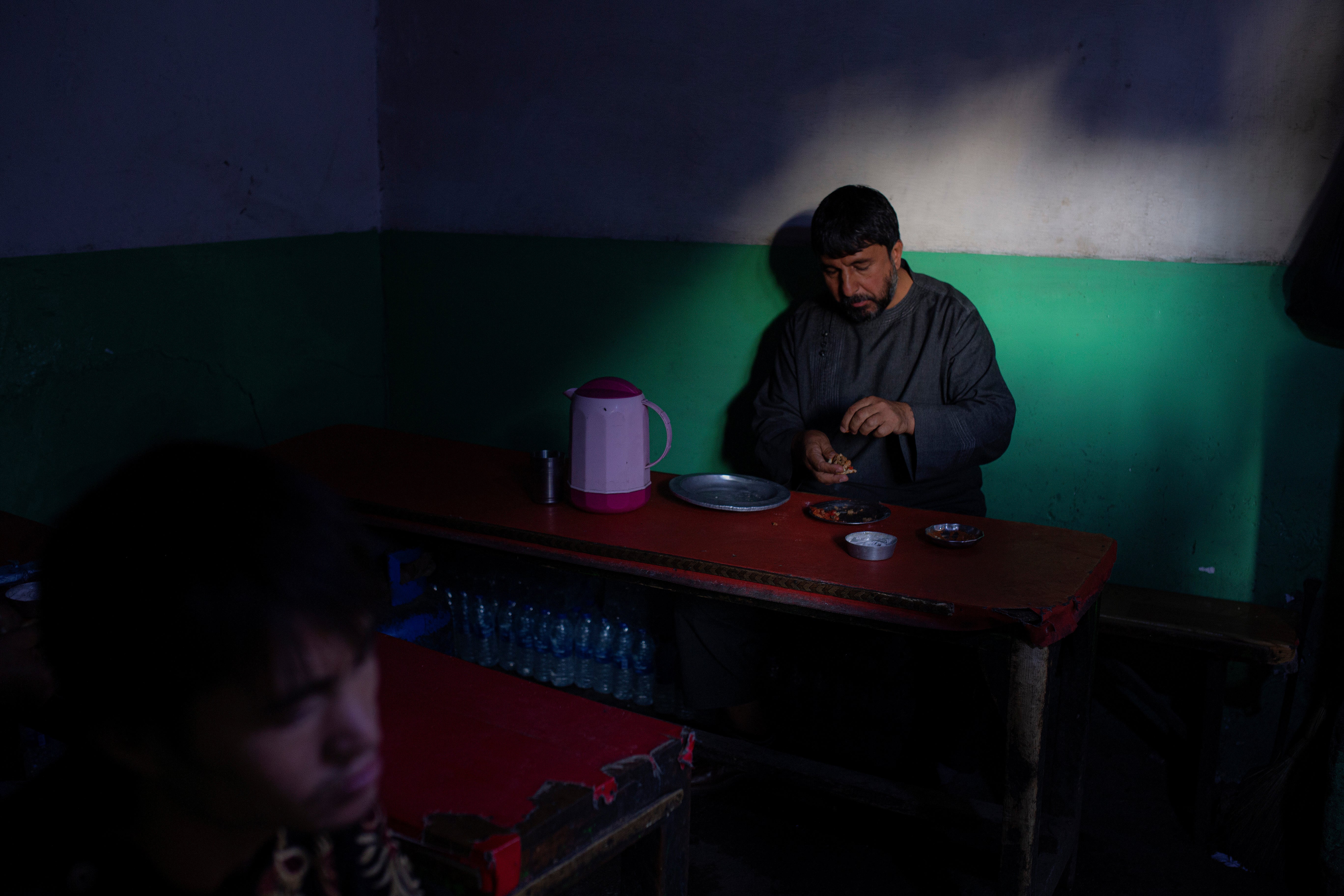Afghanistan faces worst hunger crisis since records began as children starve to death in Kabul
Over five million children are now just a step away from facing the effects of famine in the country

Your support helps us to tell the story
From reproductive rights to climate change to Big Tech, The Independent is on the ground when the story is developing. Whether it's investigating the financials of Elon Musk's pro-Trump PAC or producing our latest documentary, 'The A Word', which shines a light on the American women fighting for reproductive rights, we know how important it is to parse out the facts from the messaging.
At such a critical moment in US history, we need reporters on the ground. Your donation allows us to keep sending journalists to speak to both sides of the story.
The Independent is trusted by Americans across the entire political spectrum. And unlike many other quality news outlets, we choose not to lock Americans out of our reporting and analysis with paywalls. We believe quality journalism should be available to everyone, paid for by those who can afford it.
Your support makes all the difference.At least 14 million children are among 22.8 million people in Afghanistan who will suffer from an unprecedented food crisis this winter, an alarming new report has warned.
It represents a 35 per cent increase in the level of hunger compared to last year, according to UN data analysed by London-based aid organisation Save The Children.
The Taliban took control of Afghanistan in mid-August after the US pulled its troops out following a 20-year war. Since then, the country has been pushed into a worsening humanitarian crisis.
Western countries and global financial institutions such as the World Bank and the International Monetary Fund suspended their aid soon after the Taliban wrested control.
More than half the country’s population are now “marching to starvation” due to the ensuing political turmoil and the collapse of the country’s economy, David Beasley, executive director of the UN World Food Programme (WFP), told Reuters on Monday. This is almost double the figure of 14 million that was reported just two months ago.
More than five million children are now just a step away from facing the effects of famine, as the country struggles to cope with its worst-ever food crisis since records began.
Last week, eight children from a family lost their lives to starvation in western Kabul, according to Save the Children. They were aged between 18 months and eight years old.
The Integrated Food Security Phase Classification (IPC) report, cited by Save the Children, found that more than one in two Afghans will be facing a crisis or emergency levels of acute food insecurity from next month and leading up to the March 2022 lean season.
“The situation is already desperate – we see young children in our clinics every day who are wasted from severe malnutrition because they have nothing but scraps of bread to eat. But when winter sets in we’re going to see more children going hungry than ever before,” Orlaith Minogue, senior conflict and humanitarian adviser at Save the Children, said in a statement.
Earlier this month, the WFP warned that around a million children were at risk of dying from severe acute malnutrition, if they were not provided with treatment.
“Children are going to die, people are going to starve,” said Mr Beasley. “Things are going to get a lot worse. I don’t know how you don’t have millions of people, and especially children, dying at the rate we are going with the lack of funding and the collapsing of the economy. You’ve got to unfreeze these funds so people can survive.”
The WFP needs up to $220m (£160m) a month to partially feed the nearly 23 million people as winter approaches.
The US alone froze nearly $9.5bn (£6.9bn) in assets belonging to the Afghan central bank and stopped shipments of cash to prevent the Taliban from accessing the money.
Even prior to the Taliban takeover, Afghanistan had the second-greatest number of people facing emergency levels of hunger in the world. The situation in the past two months since the takeover, however, has become so dire that families are selling off their possessions to buy food.
In September, the international community, at a conference in Geneva, pledged more than $1bn to support Afghanistan.
Join our commenting forum
Join thought-provoking conversations, follow other Independent readers and see their replies
Comments